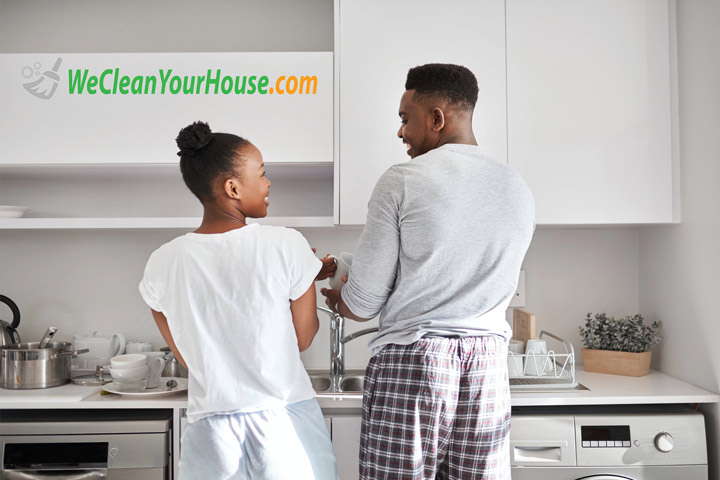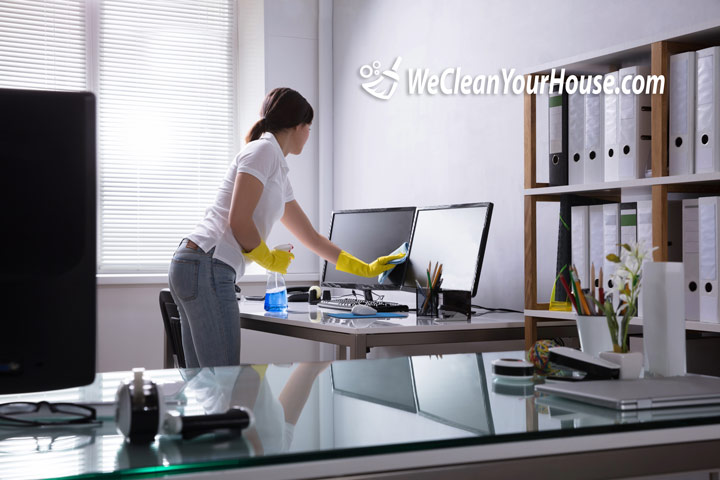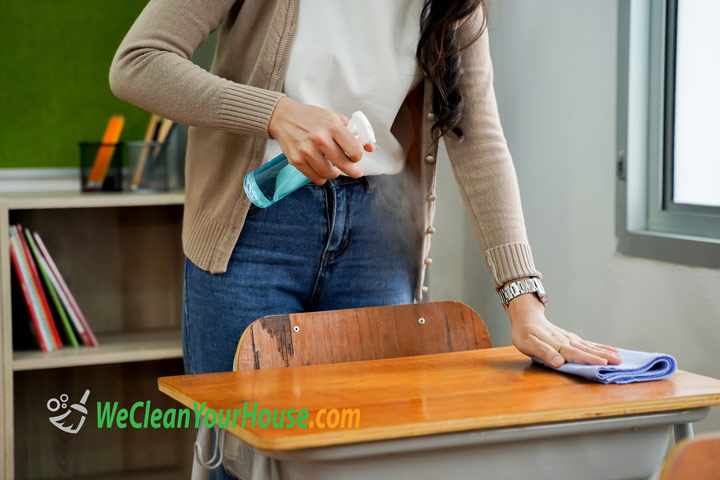In a world where health is paramount, maintaining cleanliness emerges as a fundamental practice for ensuring well-being. From preventing the spread of infections to promoting mental tranquility, regular cleaning plays a pivotal role in safeguarding our health.
Understanding Regular Cleaning
Regular maintenance refers to the consistent practice of tidying up and maintaining hygiene standards in our living and working spaces. It involves tasks such as dusting, vacuuming, disinfecting surfaces, and organizing clutter. This routine upkeep is crucial for curbing the proliferation of harmful germs and pathogens.
Physical Health Benefits
Periodic tidying not only keeps our surroundings aesthetically pleasing but also contributes significantly to our physical health. By eliminating dust, allergens, and other pollutants, it reduces the risk of respiratory issues and allergic reactions. Moreover, frequent disinfection of surfaces helps prevent the transmission of contagious diseases, promoting a healthier environment for inhabitants.
Mental Health Benefits
cluttered spaces can induce stress and anxiety, whereas clean surroundings promote calmness and clarity of mind. By maintaining cleanliness, individuals can cultivate a peaceful atmosphere conducive to mental relaxation and productivity.
Importance of Regular Cleaning in Different Settings

Residential Spaces
In homes, recurrent cleaning is essential for creating a safe and comfortable living environment for residents. It prevents the accumulation of dust mites and mold, which are common allergens, thus reducing the risk of respiratory ailments. Additionally, a clean home fosters harmony and promotes family well-being.
Workplaces
In the workplace, cleanliness is crucial for maintaining employee health and productivity. Recurrent cleaning of shared spaces and high-touch surfaces helps prevent the spread of contagious illnesses, thereby minimizing absenteeism. Moreover, a clean and organized office fosters a positive work culture and enhances employee morale.

Educational Institutions
Cleanliness is paramount in educational settings to ensure the health and safety of students and staff. Regular cleaning of classrooms, restrooms, and common areas reduces the risk of infections and promotes a conducive learning environment. It also instills good hygiene habits in students, setting the foundation for a lifetime of health and well-being.

Tips for Maintaining Regular Cleaning Habits
To incorporate regular house cleaning into daily life, it’s essential to establish a consistent routine and prioritize tasks effectively. Here are some tips for maintaining regular cleaning habits:
- Establishing a cleaning routine: Designate specific times for cleaning tasks and stick to them consistently.
- Organizing cleaning tasks effectively: Break down cleaning chores into manageable segments and tackle them one at a time.
- Utilizing cleaning products and tools efficiently: Choose the right cleaning products and tools for each task to maximize effectiveness and efficiency.
Overcoming Challenges in Maintaining Regular Cleaning
Despite recognizing the importance of consistent cleaning, many individuals encounter challenges in maintaining consistent habits. Common obstacles include time constraints, lack of motivation, and physical limitations. By implementing strategies such as time management techniques, setting realistic goals, and seeking assistance when needed, individuals can overcome these challenges and prioritize cleanliness in their lives.
Incorporating Regular Cleaning into Daily Life

Incorporating routine maintenance into daily life requires adopting small habits and creating an environment conducive to cleanliness. Simple practices such as making the bed each morning, washing dishes promptly, and de-cluttering regularly can make a significant difference in maintaining a clean living space. By cultivating a mindset of cleanliness and organization, individuals can effortlessly integrate regular cleaning into their daily routines.
The Impact of Regular Cleaning on Long-Term Health
Consistent cleanliness not only benefits short-term health but also has long-term implications for overall well-being. By preventing the accumulation of harmful substances and reducing exposure to pathogens, periodic tidying contributes to the prevention of chronic health conditions such as respiratory diseases and infections. Moreover, a clean and hygienic environment fosters longevity and enhances quality of life in the long run.
Educating Others on the Importance of Regular Cleaning

Advocating for cleanliness is crucial for promoting public health and hygiene awareness. By educating others about the importance of frequent cleaning and sharing practical tips for maintaining cleanliness, individuals can inspire positive change in their communities. Teaching children about hygiene and cleanliness from a young age instills lifelong habits that contribute to their health and well-being.
Common Misconceptions About Regular Cleaning
Despite its significance, regular cleaning is often plagued by myths and misconceptions. Common misconceptions include the belief that cleanliness is solely for aesthetic purposes or that occasional cleaning is sufficient to maintain hygiene. By debunking these myths and emphasizing the health benefits of regular cleaning, individuals can encourage others to prioritize cleanliness in their lives.
Conclusion
In conclusion, persistent cleaning is a cornerstone of good health, with both physical and mental benefits. By maintaining cleanliness in our living and working spaces, we can create a safe, healthy environment conducive to overall well-being. By incorporating regular cleaning habits into our daily routines and educating others about its importance, we can promote a culture of cleanliness and improve public health outcomes.
Unique FAQs
- Is regular cleaning necessary if my home looks clean already? Regular cleaning is essential regardless of the appearance of your home. Even if surfaces appear clean, they may harbor invisible germs and allergens that pose health risks.
- How often should I clean high-touch surfaces like doorknobs and light switches? It’s advisable to clean high-touch surfaces daily, especially in households with multiple occupants or high traffic areas.
- Can hiring a professional cleaning service replace regular cleaning habits? While professional cleaning services can provide deep cleaning and maintenance, it’s still important to maintain regular cleaning habits between professional visits to ensure continuous cleanliness.
- What are some eco-friendly alternatives to chemical cleaning products? Vinegar, baking soda, and lemon juice are effective natural cleaners that can be used as alternatives to chemical cleaning products. They are safe, environmentally friendly, and cost-effective.
- How can I motivate myself to clean regularly if I find it tedious? Break down cleaning tasks into smaller, manageable segments, set achievable goals, and reward yourself for completing tasks. Additionally, playing music or listening to podcasts can make cleaning more enjoyable and motivating.

